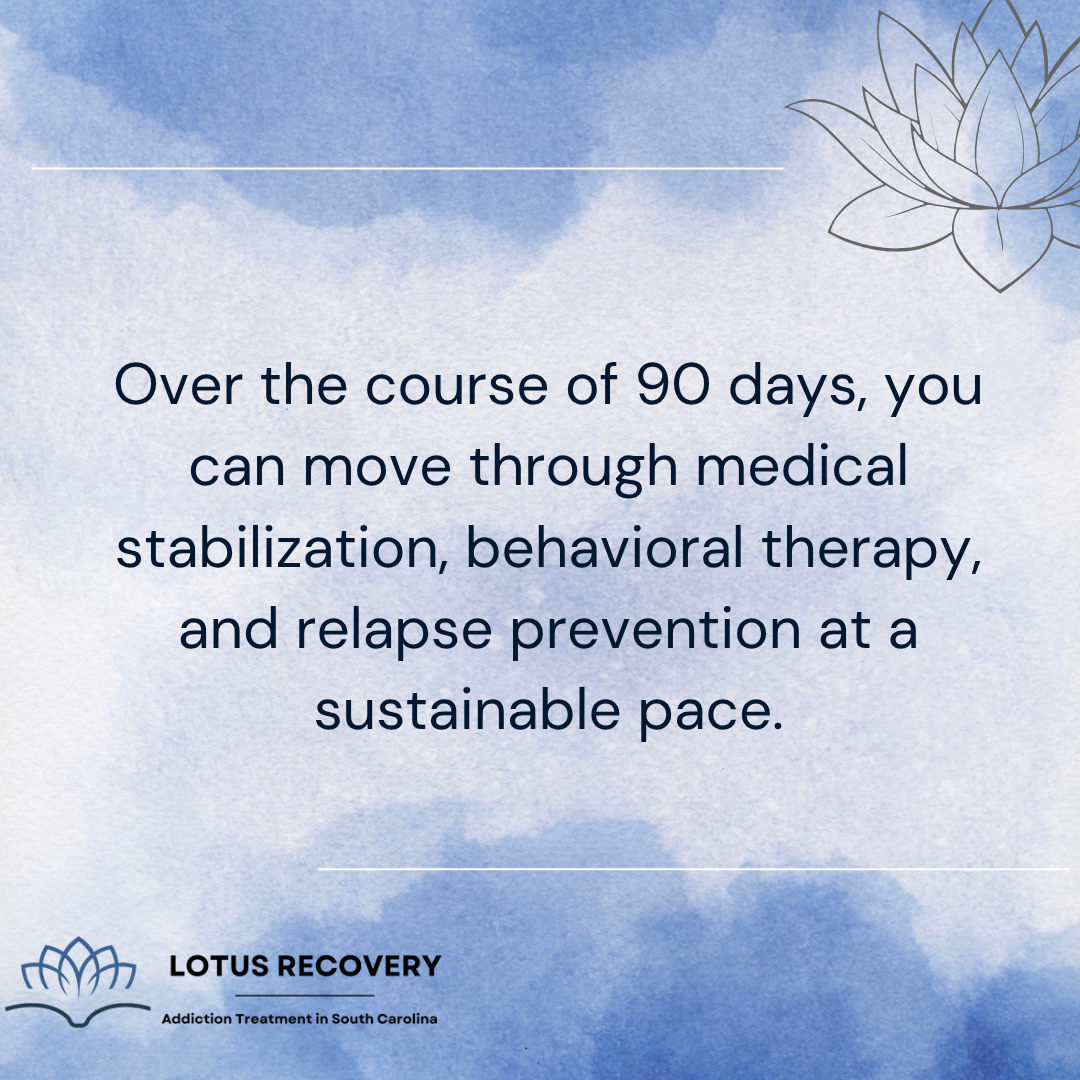-min.jpg)
Know the dangers of amphetamine addiction and its impact on the brain. Discover how a 90-day long-term program in South Carolina supports full recovery.
Amphetamines are powerful stimulants that affect your brain’s reward system. They’re often prescribed to treat conditions like ADHD or narcolepsy, but when used outside of medical guidance, they can quickly become addictive.
And the numbers tell the story clearly. In the U.S., roughly 4 million people reported misusing prescription amphetamines, and 1.8 million met the criteria for a prescription stimulant use disorder.
If you’re ready to step away from this cycle, a 90-day long-term program in South Carolina gives you the time, guidance, and stability needed to start healing for good. In this blog, you’ll learn what amphetamine addiction really looks like and why short-term rehab often isn’t enough to rebuild a lasting recovery.

Like other forms of addiction, amphetamine addiction doesn’t just happen overnight. It often starts with a prescription or casual use until it takes on a life of its own.
These drugs belong to a class of stimulants that increase alertness and boost brain activity, which is exactly what makes them so addictive. Over time, the brain adapts to its effects and begins to depend on them to function “normally.” Programs like South Carolina addiction treatment focus on rewiring those brain patterns and helping you regain balance.
Amphetamines come in several forms, from prescribed medications like Adderall, Dexedrine, Vyvanse, and Desoxyn, to illicit versions like methamphetamine sold as powder or crystals. Whether it’s a pill or something stronger, the risk is the same: tolerance builds, cravings grow, and stopping suddenly can feel impossible without help.
In the short term, amphetamines can make you feel invincible. Short-term effects include:
Over time, the same drug that once gave you a rush starts breaking you down. The longer you use it, the more serious the damage becomes. Here are some long-term dangers:

By the time amphetamine use turns into dependence, your brain and body are already wired to expect the drug.
Certainly, detoxing or doing a quick stay at a rehab center might help you get through withdrawal. Short-term rehab programs can also help stabilize you, but they often end right when the real work begins.
Many people relapse after leaving because cravings, triggers, and stress come rushing back before new coping habits can take hold. Without a consistent structure, your brain easily slips back into old patterns.
That’s why 90 day rehab programs make such a difference. With more time, you can work through layers of addiction (e.g., physical cravings, mental fog, emotional triggers) and actually start building new habits that last. These longer programs combine therapy, accountability, and daily routines that help your mind re-learn stability and focus.
A 90-day long-term program in South Carolina offers a strong foundation for recovery. Here are the best benefits you’ll get when you choose this program.
Healing from amphetamine addiction takes more than physical detox. Over the course of 90 days, you can move through medical stabilization, behavioral therapy, and relapse prevention at a sustainable pace. That gradual process helps the brain reset while building the mental and emotional tools needed to stay sober.
In a structured inpatient drug rehab setting, you’re surrounded by peers who understand what you’re going through. That shared experience fosters mutual accountability and emotional support, which are two major factors in long-term recovery. Group therapy and daily routines reinforce stability and remind you that you’re not alone in this process.
Many people struggling with stimulant addiction also experience anxiety, depression, or other mental health challenges. Long-term programs create the space to treat both conditions simultaneously, helping individuals understand how each issue influences the other.
Studies consistently show that longer treatment durations lead to higher success rates and lower relapse risks. With 90 days, there’s time to practice new coping skills, strengthen decision-making, and develop healthy habits that carry forward after discharge.

A 90-day long-term program in South Carolina is designed to give recovery the structure it needs to last. Each day follows a clear rhythm that blends medical support, therapy, and personal growth.
Here, days are structured around therapy sessions, group counseling, and practical life skills workshops. This steady routine helps restore focus and accountability, while giving you the tools to handle real-world challenges once you leave treatment. Over time, structure becomes less of a rule and more of a rhythm that supports your recovery.
Throughout the program, medical professionals also monitor withdrawal symptoms, physical health, and any co-occurring mental health conditions. This integrated care ensures that treatment addresses both the physical and psychological sides of recovery, making relapse less likely and healing more complete.
Addiction affects more than the individual, which is why family involvement is built into the process. Loved ones are invited to participate in education and therapy sessions to better understand addiction, rebuild trust, and learn how to support recovery at home.
Finding the right treatment setting can hugely impact your recovery outcomes. With so many addiction treatment centers in South Carolina, it’s important to look beyond surface details and focus on what truly supports long-term healing.
Keep in mind that each center offers different levels of care, therapies, and philosophies. The key here is finding the one that fits your individual needs and goals. One of the strongest options to consider is if a facility offers inpatient drug rehab for stimulant addiction. This program offers several benefits, including:
Choosing the right program often means weighing practical and personal factors, such as location, treatment approach, and available aftercare. Some individuals benefit most from cognitive-behavioral therapy and dual diagnosis support, while others need a program with strong family involvement or relapse prevention planning.
Remember: The best addiction treatment centers in South Carolina offer flexibility within structure, tailoring care to meet your specific needs.

Amphetamines are powerful and dangerous. They change the brain in ways that make recovery a long, careful process. Real healing takes more than quick detoxes or short-term stays; it requires time, structure, and steady support to rebuild what addiction has taken.
A 90-day long-term program in South Carolina gives you that foundation. Through consistent therapy, medical oversight, and peer connection, it offers the space to restore balance, strengthen coping skills, and build a life free from dependence.
If you or someone you care about is ready to take that next step, reach out to trusted South Carolina addiction treatment providers like Lotus Recovery. With the right program and guidance, long-term sobriety is within your reach. Contact our team today!

Reviewer
Henna is a content strategist with over 5 years of experience in behavioral health marketing. She specializes in creating informed, compassionate content for addiction treatment centers, using her deep understanding of the industry to educate, engage, and support individuals seeking recovery.